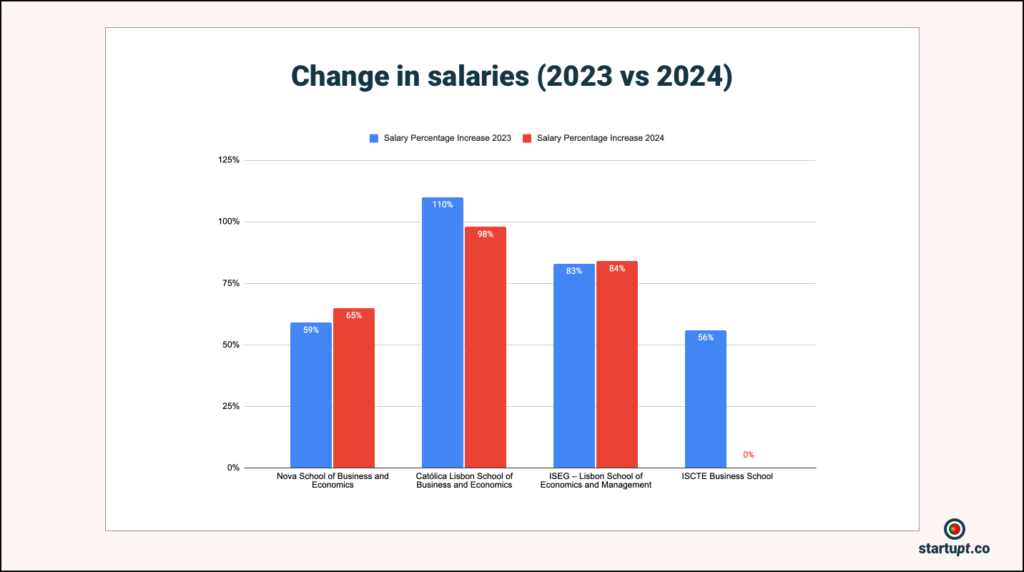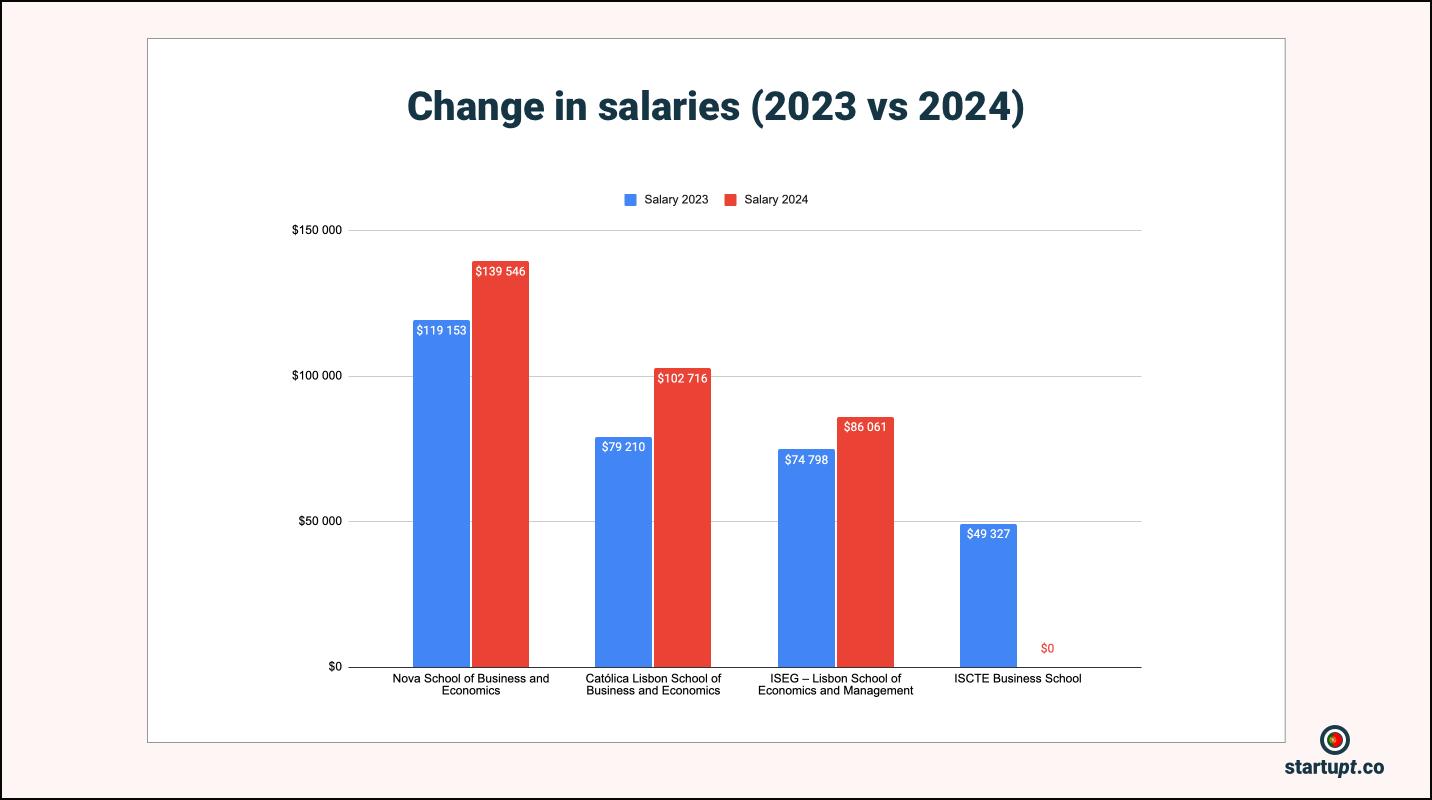The Financial Times has released its 2024 Masters in Finance pre-experience rankings, featuring 65 leading business schools from around the globe. This year, Portuguese business schools have shown a progress.
Salary Increases Highlight Financial Sector Strength
The 2024 rankings reveal that alumni from top finance programs have seen substantial salary growth, especially those entering the financial sector. Graduates reported an average salary of $98,000 three years after graduation, marking a 12 percent increase from 2023. In contrast, those pursuing careers outside finance experienced a modest 3 percent rise, with average earnings of $78,000. This trend underscores the lucrative nature of finance careers.
Since 2017, nearly three-quarters of graduates from these programs have entered the financial sector, consistently out-earning their peers in other industries. The salary gap between these two groups has widened from $6,000 in 2017 to $20,000 in 2024, highlighting the robust demand for finance professionals.
The leader — ESCP Business School (Paris, France) with impressive $165,557 and +57%. And by the way, top 4 of the 2024 rankings are business schools from France. Number 5 — from China (Tsinghua University School of Economics and Managemen). Last year we could see the similar situation with top5 — total dominance of French business schools.
Notable Advances for Portuguese Business Schools
Portuguese business schools have made impressive strides in the latest rankings, showcasing their enhanced performance and growing international recognition.
Nova School of Business and Economics remains a standout institution in Portugal, known for its rigorous curriculum and global appeal. In the 2023 ranking, Nova was placed 11th with an average salary of $119,153 and a 59% salary increase. This year, Nova has maintained its strong position, emphasizing its commitment to providing top-tier education in finance.
Católica Lisbon School of Business and Economics has also improved its standing. In the 2023 ranking, Católica Lisbon was 21st, with graduates earning an average salary of $79,210 and an impressive 110% salary increase. The 2024 ranking sees Católica Lisbon advancing to 16th, further solidifying its reputation for innovation and strong industry connections.
ISEG – Lisbon School of Economics and Management went a little bit down this year (#30). Last year, ISEG was ranked 23rd, with an average salary of $74,798 and an 83% increase.
University of Porto – FEP | PBS started this year rankings on 55th place with $45,026 with impressive 56% salary increase.

Cost of Education in Portuguese Business Schools
One of the key advantages of pursuing a Masters in Finance in Portugal is the cost-effectiveness compared to other regions. Continental European courses, including those offered by Portuguese institutions, are among the most affordable. This is a significant draw for international students looking for high-quality education at a reasonable price.
For instance, the current annual tuition fee for the Masters in Finance program at Nova School of Business and Economics is starting from €13,250 per 1.5 years. Católica Lisbon School of Business and Economics charges around €15,650 for its 2 years long finance master’s program. These fees are considerably lower than those of North American and UK schools, making Portuguese institutions an attractive option for cost-conscious students without compromising on the quality of education.
Emphasizing Sustainability and Value for Money
The Financial Times ranking also considers business schools’ commitments to sustainability, evaluating their efforts towards net zero emissions and transparency in carbon emissions audits. Here, Portuguese schools have shown a commendable dedication to integrating sustainability into their operations and curriculum, preparing students for the growing field of sustainable finance.
Alumni from these programs have rated their courses in corporate finance, investments, and statistics as the strongest, indicating a well-rounded education that equips graduates with essential skills for the finance industry. Compliance, however, received the lowest ratings, suggesting an area for potential improvement.
Conclusion
The 2024 Financial Times Masters in Finance ranking highlights the financial sector’s strength and the significant progress of Portuguese business schools. With competitive pricing, strong academic programs, and a commitment to sustainability, institutions like Nova School of Business and Economics and Católica Lisbon School of Business and Economics are drawing increasing numbers of international students.
As the demand for specialized finance education continues to rise, Portuguese business schools are well-positioned to offer high-value education that meets the needs of the evolving global market. Their ability to provide excellent education at a reasonable cost will likely continue to enhance their reputation and impact in the field of finance education.
